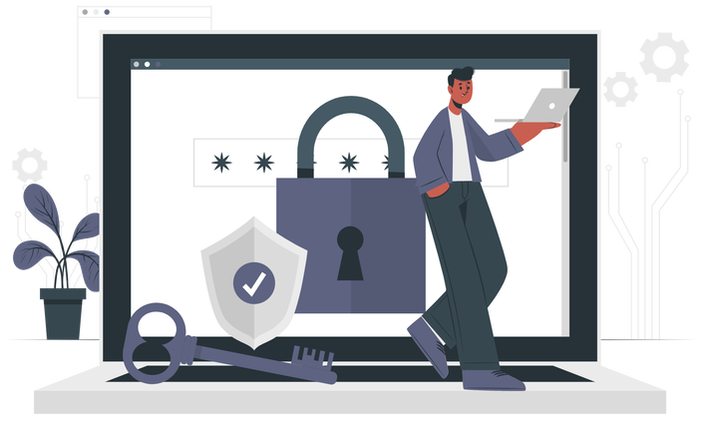|
In the not-so-distant past, mental health was often stigmatised, misunderstood, and frequently overlooked in discussions of overall well-being. However, in recent years, there has been a remarkable shift in the way society views and addresses mental health. This article will delve into the changing landscape of mental health awareness, highlighting the significant progress made in recent years.
1. Breaking the Silence: One of the most noticeable changes is the opening up of conversations around mental health. The stigma that previously shrouded these discussions is slowly dissipating. More people are sharing their experiences with mental health issues, encouraging others to do the same. This open dialogue has led to increased understanding and empathy for those facing mental health challenges. 2. Workplace Wellness: Employers are increasingly recognising the importance of mental health in the workplace. In response, many have implemented mental health programs, employee assistance services, and flexible work arrangements to support their employees' well-being. This shift not only benefits individual workers but also contributes to a more productive and engaged workforce. 3. Advocacy and Education: Mental health organisations, advocacy groups, and educational institutions have played a pivotal role in raising awareness. Initiatives like Mental Health Awareness Month and World Mental Health Day have gained momentum, providing platforms for discussing mental health and sharing resources for those in need. 4. Digital Mental Health Resources: The digital age has brought with it a wealth of accessible mental health resources. Apps, online support groups, and teletherapy services have made it easier for individuals to seek help and connect with professionals from the comfort of their own homes. Technology has removed many of the barriers that once prevented people from accessing mental health care. 5. Government Initiatives: Governments worldwide are increasingly recognising the importance of mental health. They have allocated more funding to mental health services, passed legislation to protect the rights of individuals with mental health conditions, and promoted awareness campaigns to reduce stigma and discrimination. 6. The Role of Celebrities and Public Figures: Celebrities and public figures have been using their platforms to share their own experiences with mental health challenges, sparking important conversations. Their willingness to be open and vulnerable has contributed to breaking down stereotypes and normalising discussions about mental health. 7. Holistic Well-Being: The concept of well-being has expanded to encompass not just physical health but also mental health. People are embracing holistic approaches to wellness that address both body and mind. Yoga, mindfulness, and meditation are gaining popularity, promoting emotional and mental well-being alongside physical fitness. 8. More Accessible Treatment: Access to mental health treatment has improved in recent years. Insurance coverage for mental health services has expanded, making care more affordable. More professionals are entering the field, reducing wait times for therapy and counselling. 9. Empowerment through Self-Help: Individuals are increasingly taking control of their own mental health. They are educating themselves, seeking support, and proactively managing their well-being. This empowerment is a positive shift toward a society that values self-care and emotional health. Summary While substantial progress has been made in recent years, there is still work to be done. Mental health awareness is an ongoing journey, and reducing stigma and ensuring access to quality care remains a collective effort. However, the shift in perception and the growing acceptance of mental health as a crucial component of overall well-being represent important milestones in the evolution of our society. As we continue to break down barriers and foster understanding, we pave the way for a brighter and more compassionate future for mental health.
0 Comments
Introduction
Time, as they say, is a finite resource. In a world that constantly demands more of our attention, the ability to manage it effectively is a superpower. Time management isn't just about getting more done; it's about achieving your goals, reducing stress, and reclaiming your life. Here's why time management is so important. 1. Enhanced Productivity: Effective time management allows you to make the most of your day. It helps you prioritise tasks, eliminate distractions, and allocate your resources efficiently. With the right strategy, you can accomplish more in less time, leaving you with the bandwidth to tackle new challenges or enjoy some well-deserved leisure. 2. Achieving Your Goals: Whether you're pursuing a career milestone, a personal achievement, or a fitness target, time management is the compass that keeps you on track. When you allocate your time to tasks that align with your goals, you make steady progress, inching closer to your aspirations with each well-spent moment. 3. Reducing Stress: One of the greatest sources of stress is the feeling of being overwhelmed by looming deadlines and mounting to-do lists. Effective time management allows you to break tasks into manageable pieces, creating a sense of control and reducing stress. When you know what you need to do and when to do it, you can approach your responsibilities with a clear mind. 4. Work-Life Balance: Balancing work and personal life is a struggle for many, but it's crucial for overall well-being. Time management helps you create boundaries. By allocating specific blocks of time to work and personal life, you can protect the precious moments with your loved ones and ensure you don't neglect self-care. 5. Opportunities and Growth: Effective time management opens doors to new opportunities. With a well-organised schedule, you have the flexibility to seize unplanned chances for career advancement, learning experiences, or leisure activities. Being in control of your time means being in control of your destiny. 6. Quality Over Quantity: Time management encourages a focus on quality over quantity. It allows you to dedicate more attention to each task, reducing the likelihood of errors and improving the overall quality of your work. This can lead to greater job satisfaction and professional recognition. 7. Self-Discipline and Self-Improvement: Mastering time management requires self-discipline, a skill that goes beyond time itself. It instills a sense of responsibility and accountability. As you adhere to your schedules and commitments, you build self-discipline and become better at managing other aspects of your life. Summary Time management isn't about squeezing more tasks into your day; it's about regaining control over your life, achieving your goals, and fostering a sense of fulfillment. It's a skill that empowers you to make every moment count. Start today, and you'll discover the true potential of time management to transform your life. In today's fast-paced and ever-evolving professional landscape, staying ahead of the curve is not just a luxury; it's a necessity. The key to ensuring your career remains on the upward trajectory is through Continuing Professional Development (CPD). In this article, we'll explore why CPD is vital for personal and professional growth.
What is CPD? Continuing Professional Development, or CPD, refers to the ongoing process of learning, improving, and acquiring new skills and knowledge throughout your career. It's a proactive approach to staying relevant and competitive in your field. The Importance of CPD: 1. Staying Current in Your Field: The business world is in a constant state of flux. Whether you're in finance, healthcare, IT, or any other sector, industry trends, regulations, and technologies are continually changing. CPD enables you to stay up-to-date with the latest developments and best practices, ensuring that you remain a valuable asset to your organisation or clients. 2. Enhancing Your Skills: As professionals, we should always be looking for opportunities to improve and refine our skills. CPD allows you to not only strengthen your existing skill set, but also acquire new ones. This can make you more adaptable and versatile, opening up new career opportunities. 3. Increased Confidence: When you invest in your professional development, you gain a greater sense of confidence in your abilities. This self-assurance can lead to increased job satisfaction and a more positive career outlook. 4. Meeting Regulatory Requirements: Many professions have mandatory CPD requirements to maintain certifications or licenses. Failing to meet these requirements can lead to penalties or even the loss of your professional status. CPD ensures you remain compliant with these regulations. 5. Networking and Career Opportunities: CPD often involves attending workshops, conferences, and seminars. These events provide excellent opportunities for networking and can lead to new career prospects, partnerships, or collaborations. 6. Job Security: In today's competitive job market, companies are more likely to retain employees who show a commitment to growth and development. CPD can enhance your job security by demonstrating your dedication to improving and contributing to your organisation's success. 7. Personal Fulfilment: Learning is a fulfilling and rewarding experience. CPD allows you to pursue your interests, explore new passions, and keep your mind engaged. It can be a source of personal satisfaction and a reminder of why you entered your field in the first place. Continuing Professional Development is not just about meeting requirements; it's about investing in your future success. It's a journey that empowers you to adapt, evolve, and thrive in your career while maintaining a passion for learning. Make CPD a cornerstone of your professional life, and you'll discover that the pursuit of excellence never truly ends. Check out the ESI-UK CPD membership to see how easy and cost-effective personal and professional growth really is! How to Implement CPD: 1. Set Goals: Define what you want to achieve through CPD, whether it's mastering a new skill, achieving a certification, or simply broadening your knowledge. 2. Plan Your Learning: Identify the most effective ways to acquire new knowledge or skills. This can involve taking courses, attending seminars, reading industry publications, or seeking mentorship. 3. Keep Records: Maintain a CPD log to track your progress and achievements. This will be valuable when documenting your CPD activities for certification or personal reference. 4. Stay Consistent: Commit to regular CPD activities. Consistency is key to reaping the long-term benefits of ongoing learning. 5. Reflect and Apply: After each CPD activity, take time to reflect on what you've learned and how it can be applied in your work or life. In an increasingly digital age, the importance of cybersecurity cannot be overstated. With the United Kingdom's growing dependence on the internet for personal, business, and governmental functions, the need to safeguard our digital world has never been more crucial. In this article, we'll explore the landscape of cybersecurity in the UK, discuss emerging threats, and provide practical tips for protecting yourself online.
The State of Cybersecurity in the UK Cyber threats in the UK have continued to evolve, affecting individuals, businesses, and government institutions alike. From ransomware attacks crippling healthcare organisations to phishing scams targeting unsuspecting individuals, the digital landscape is fraught with potential risks. The UK government and cybersecurity industry have been working tirelessly to strengthen defences against these threats, but individuals also play a pivotal role in their own protection. Common Cyber Threats 1. Phishing Attacks: Phishing emails and websites that mimic legitimate entities are a common threat. They trick users into revealing personal information, such as login credentials and financial details. 2. Ransomware: Ransomware attacks can lock you out of your own data until you pay a hefty ransom. These attacks often target businesses, but individuals can be victims as well. 3. Malware: Malicious software can infect your devices and steal sensitive information. Regularly update your antivirus and anti-malware software to defend against this threat. 4. Social Engineering: Cybercriminals typically manipulate individuals into divulging sensitive information. Be cautious when sharing personal data, even if the request appears to come from a trusted source. Protecting Your Digital World 1. Strong Passwords: Use complex and unique passwords for each online account. Consider using a password manager to help you remember them. 2. Multi-Factor Authentication (MFA): Enable MFA wherever possible. This adds an extra layer of security by requiring you to provide multiple pieces of information to access your accounts. 3. Regular Updates: Keep your operating system, software, and apps up to date. Many updates include security patches to protect against known vulnerabilities. 4. Secure Wi-Fi: Ensure your home Wi-Fi network is password-protected and uses WPA3 encryption. Change default passwords on routers. 5. Awareness and Education: Stay informed about the latest cyber threats and scams. Learn to recognise phishing attempts and educate your family and colleagues. 6. Backup Your Data: Regularly back up your important files to an external drive or a secure cloud storage service. In the event of a ransomware attack, you won't be at the mercy of cybercriminals. 7. Secure Your Mobile Devices: Apply the same security principles to your smartphones and tablets. Install security apps and update your mobile OS regularly. Government Initiatives The UK government has taken several measures to bolster national cyber security. The National Cyber Security Centre (NCSC) provides guidance on various aspects of online safety and offers resources for individuals and businesses. The CyberFirst initiative aims to cultivate the next generation of cyber professionals through education and training programs. Conclusion Cybersecurity is an ongoing concern, and the landscape will continue to evolve. However, by staying vigilant, following best practices, and educating yourself about the latest threats, you can significantly reduce your risk of falling victim to cyberattacks. Protecting your digital world is a shared responsibility that requires a collective effort from individuals, businesses, and government agencies. By working together, we can help secure our digital future in the UK. Introduction
The world of education is constantly evolving, and in recent years, e-learning has emerged as a game-changer. E-learning, or electronic learning, is the use of technology to deliver educational content and provide learning opportunities. Its benefits are far-reaching, impacting learners of all ages and backgrounds. In this blog, we'll explore the advantages of e-learning and why it is considered an essential tool for education in the 21st century. 1. Accessibility and Flexibility One of the most significant advantages of e-learning is its accessibility. It transcends geographical barriers, allowing students from all corners of the world to access educational resources. Whether you're a working professional, a stay-at-home parent, or a student in a remote village, e-learning makes education available at your convenience. This accessibility also extends to those with physical disabilities, making education more inclusive. E-learning provides flexibility that traditional classroom settings cannot match. Learners can choose when and where they study, tailoring their learning experience to suit their personal schedules. This flexibility is especially beneficial for working adults, as they can balance their jobs and education seamlessly. 2. Cost-Effective: Traditional education often comes with significant costs, including tuition, textbooks, transportation, and more. E-learning significantly reduces these expenses. Course materials are typically available online, which eliminates the need for expensive textbooks. Additionally, e-learners save money on commuting and housing, as they can study from the comfort of their own homes. Many e-learning platforms also offer free or affordable courses, making education more affordable for everyone. 3. Customised Learning Paths: E-learning platforms often employ advanced technologies, such as artificial intelligence and data analytics, to provide personalised learning experiences. These platforms can adapt to each student's individual learning style, pace, and needs. Adaptive learning algorithms can suggest additional resources or lessons for areas where a student may be struggling and skip over material they've already mastered. This customisation ensures that learners get the most out of their educational experience. 4. Self-Paced Learning: E-learning caters to a diverse range of learning paces. In traditional classrooms, students may feel pressure to keep up with the class, which can lead to anxiety and missed concepts. E-learning allows students to study at their own pace, spending more time on challenging topics and moving quickly through familiar ones. This self-paced approach boosts comprehension and retention, ensuring that students truly understand the material. 5. A Wealth of Resources: The digital realm is teeming with educational resources, from videos and interactive simulations to e-books and online forums. E-learners can access a vast array of materials to enhance their understanding of a subject. This abundance of resources encourages independent learning and exploration, fostering critical thinking skills and a deeper understanding of the subject matter. 6. Eco-Friendly Education: Traditional education often requires the production of printed materials, transportation, and infrastructure that has a significant environmental impact. E-learning, on the other hand, is more environmentally friendly. It reduces the need for physical resources, minimises carbon emissions from commuting, and supports the shift toward a more sustainable education system. 7. Global Connectivity: E-learning connects learners across the globe. This interconnectedness fosters diverse perspectives and experiences, enriching the learning environment. Online discussion forums, collaborative projects, and video conferencing enable students to interact with peers from different backgrounds and cultures, broadening their horizons and enhancing their social and intercultural skills. Conclusion E-learning is revolutionising education by providing accessibility, flexibility, and a wide array of resources to learners of all ages. It's cost-effective, customisable, and eco-friendly. This transformation in education brings us closer to a future where everyone, regardless of their circumstances, has the opportunity to learn and thrive. Embracing e-learning means embracing a brighter, more inclusive future for education. Whether you're a lifelong learner or an educational institution, the benefits of e-learning are undeniable, making it a powerful tool in the 21st-century educational landscape. In the dynamic world of business, every venture and initiative is essentially a project. From launching a new product to overhauling internal processes, these projects play a vital role in a company's success. To ensure that these projects run smoothly and yield the desired results, project management is essential. But why is it so important to businesses?
1. Clarity of Purpose: Project management helps businesses define clear objectives. It breaks down complex goals into manageable tasks and establishes a roadmap to achieve them. This clarity of purpose ensures that everyone involved knows exactly what they're working towards. 2. Resource Optimisation: In the business landscape, resources are often scarce and valuable. Effective project management helps allocate these resources – time, money, and human capital – optimally. This ensures that a business gets the most out of its investments. 3. Risk Mitigation: In any project, there are inherent risks. Project managers identify, assess, and mitigate these risks, helping businesses avoid potential pitfalls and financial losses. It's akin to a safety net for your ventures. 4. Time is Money: Time is a precious commodity in business. Project management ensures that tasks are completed within stipulated timeframes, helping companies meet deadlines, respond swiftly to market changes, and gain a competitive edge. 5. Budget Control: Projects come with budgets. Effective project management keeps a close eye on expenses, ensuring that projects stay within budget. This financial prudence is invaluable to businesses looking to maintain profitability. 6. Quality Assurance: Businesses thrive when they deliver high-quality products and services. Project management establishes quality control measures, ensuring that project outcomes meet or exceed established standards. 7. Communication and Collaboration: Project managers facilitate effective communication among team members, stakeholders, and other involved parties. This ensures everyone is on the same page, reducing misunderstandings and enhancing cooperation. 8. Scope Management: Project managers keep a keen eye on project scope, preventing "scope creep" – when project objectives expand beyond the original plan. This helps businesses stick to their original goals and not lose focus. 9. Stakeholder Engagement: Engaging stakeholders is essential. Project managers identify and involve key stakeholders, address their concerns, and keep them informed throughout the project, fostering trust and support. 10. Competitive Advantage: Effective project management can be a game-changer for businesses. It enables them to deliver projects faster, with higher quality, and within budget, giving them a competitive edge in the marketplace. 11. Adaptability: In an ever-changing business environment, project management allows businesses to adapt to evolving conditions and capitalise on new opportunities, all while maintaining control over their projects. In conclusion, project management is more than just a tool; it's the backbone of a successful business. It empowers companies to achieve their goals, manage risks, control costs, and maintain a competitive edge. Embracing the principles of effective project management is a smart move for any forward-thinking business. So, the next time you embark on a business venture, remember that project management is the compass that can lead you to your destination – success. Take a look at our Project Management Courses to find out more. |






 RSS Feed
RSS Feed